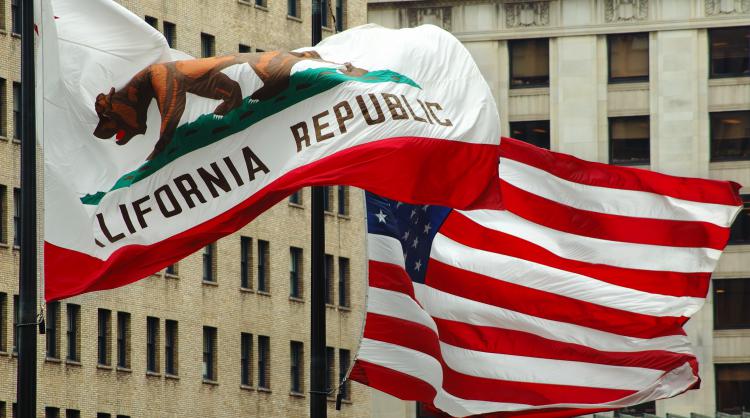California Issues Net Neutrality Challenge to FCC
February 2, 2018 | by Andrew Regitsky

In a recent CCMI webinar I stated that the worst possible outcome for Internet regulation for the country would be for each of the 50 states to legislate their own net neutrality rules in opposition to the FCC's Internet Freedom Order, while Congress sits on its hands and does nothing. Unfortunately, more and more, that seems to be the likely outcome.
Already, within the last couple of weeks, 21 states and the District of Columbia have appealed the Order to the Federal courts while New York and Montana have introduced bills that would bar state agencies from contracted with ISPs unless they agreed to comply with the "bright line" net neutrality rules.
While it could be argued that the proposed legislation in those states does not directly challenge the Commission's Order (I'm sure the FCC thinks otherwise), the same cannot be said about the bill recently passed by the California Senate. SB-460, contains provisions that directly conflict with the Commission's removal of the bright line rules.
SB-460 states the following:
It shall be unlawful for an Internet service provider that provides broadband Internet access service to engage in any of the following activities:
(a) Blocking lawful content, applications, services, or nonharmful devices, subject to reasonable network management practices.
(b) Impairing or degrading lawful Internet traffic on the basis of Internet content, application, or service, or use of a nonharmful device, subject to reasonable network management practices.
(c) Engaging in paid prioritization, or providing preferential treatment of some Internet traffic to any Internet customer.
(d) Unreasonably interfering with, or unreasonably disadvantaging, either a customer’s ability to select, access, and use broadband Internet access service or lawful Internet content, applications, services, or devices of the customer’s choice, or an edge provider’s ability to make lawful content, applications, services, or devices available to a customer.
(e) Engaging in deceptive or misleading marketing practices that misrepresent the treatment of Internet traffic or content to its customers.
(f) Advertising, offering for sale, or selling broadband Internet access service without prominently disclosing with specificity all aspects of the service advertised, offered for sale, or sold
The bill goes next to the heavily Democratic State Assembly where it is sure to pass and then be signed into law by Democratic governor Jerry Brown. It is sure to be challenged in court by the FCC and ISPs. Other states are not far from following California with their own similar legislation.
Thus, we now have the unfortunate situation developing in which the Commission and ISPs potentially battle through the courts while the industry deals with more years of uncertainty. What's worse is that even if states win, it would be a hollow victory for consumers. If ISPs are forced to comply with an array of state rules, any additional costs (and there would be many) would be paid by consumers. It's hard to envision an Internet that is "neutral" for all when so many Americans would be unable to afford to use it.
Congress, instead of stepping up to the plate to rescue us from this developing morass, instead will waste our time forcing Senators to vote up or down on the Internet Freedom Order under the Congressional Review Act, even though it has zero chance of becoming law. Democrats real intent of course is to use the anti-net neutrality votes of Republicans as a 2018 campaign issue.
The danger for Democrats is that by refusing to negotiate a compromise, they will overplay their hand and force the FCC and ISPs to fight for the Order all the way to the Supreme Court where they are likely to lose – permanently! Asking a politician to think beyond their next election is usually a bridge too far. However, it would behoove both political parties to negotiate a net neutrality compromise.
If both sides are willing, such a compromise should be relatively easy to find. Republicans and Democrats agree there should be no blocking or throttling of traffic. In exchange for the Democrats accepting that broadband Internet access service is a Title I information service (as it was for years), Republicans would accept a "no paid prioritization" rule, unless the ISP demonstrates that such prioritization is based on sound economic principles. Section 208 of the Telecom Act could be expanded to enable the FCC to handle on a case-by-case basis any complaints against ISPs that allegedly violate these rules. Presto! We have a permanent net neutrality solution.
While I do think that Congress will ultimately agree to such a compromise along these grounds, it is hard to envision this happening before the 2018 elections. It has become a "red meat" issue for Democrats, thus I don't foresee them compromising while they can use net neutrality as a 2018 bludgeon to hammer Republicans.

